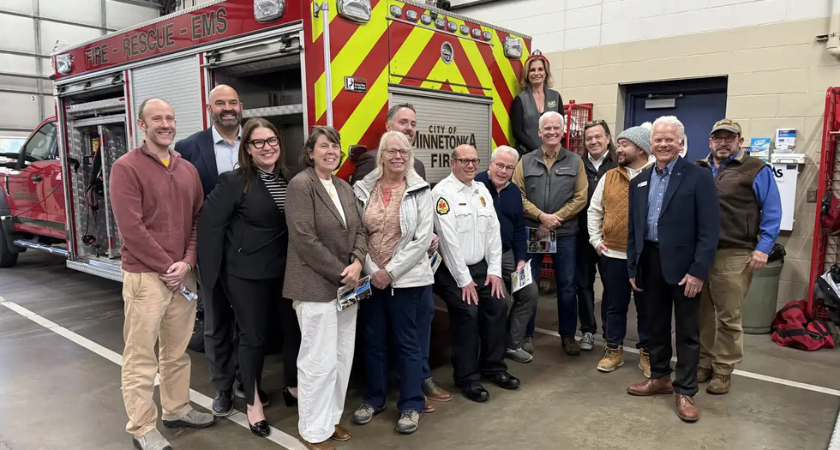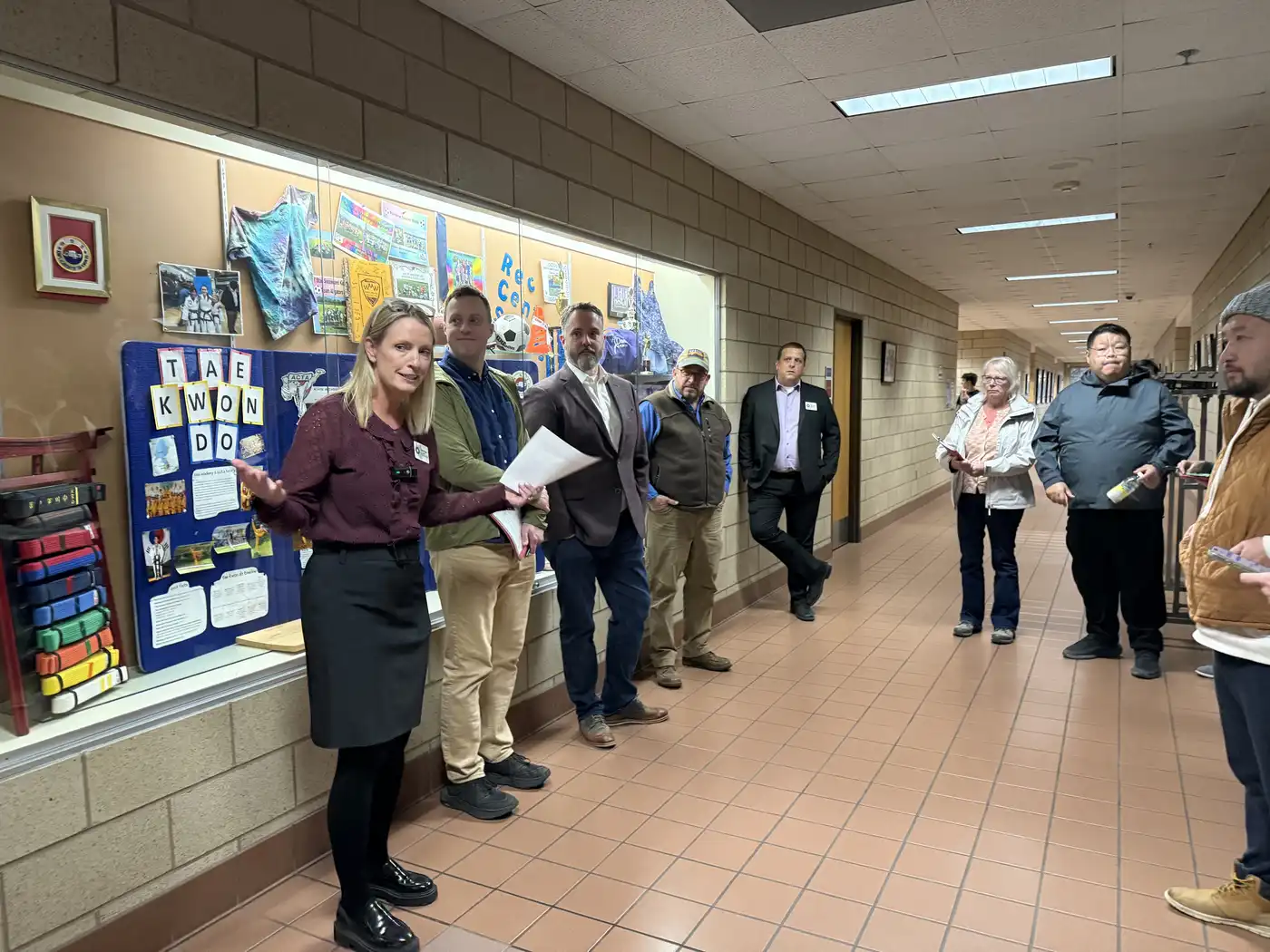
From crumbling fire stations to brown tap water and overcrowded community gyms, Minnesota cities and agencies are making their case for state support on billions of dollars in critical infrastructure needs. With requests now totaling $6.5 billion, lawmakers are touring project sites across the state as they craft the next capital investment bill — better known as the bonding bill.

Last week, a packed bus of state lawmakers arrived at a Minnetonka fire station, one of 10 stops in a single day. Legislators, tired from a marathon schedule of site visits, stepped inside the firehouse for presentations that often feel like rapid-fire pitches.
“Oh my god, can I take a nap?” House Capital Investment Committee Co-Chair Mary Franson joked as she stretched out on a leather couch in the fire station. The laugh line pointed to a serious truth: legislators are facing a massive backlog of public infrastructure needs, and they’re racing to decide which ones can be funded.
Lawmakers call the process “speed dating” for infrastructure. City leaders, agency heads, and college officials get only minutes to explain why their project deserves state support. The competition is fierce, and the stakes are high.
Assistant Fire Chief Aaron Morris told lawmakers the city must expand its 50-year-old station to lower response times and hire more firefighters. One major issue: there’s no place to sleep.
“So imagine three or four people living in here, 24 hours a day. We get very cramped, very, very cozy quick,” Morris said, pointing to a small room that doubles as a kitchen, dining, and lounge area.
The city hopes to double the station’s size and add safety upgrades, including a system to remove diesel fumes from trucks. For firefighters already facing cancer risks, Morris said this is essential.
“The trucks fire up diesel exhaust into the facility right now. It'll eventually clear and dissipate, but we don't want to add additional exposures to what we're already facing on a daily basis,” he said.
Minnetonka is seeking $5.3 million from the state.
Crowding is also pushing Chanhassen to request $22 million for a new recreation center. As kids practiced basketball nearby, Mayor Elise Ryan explained that residents now have to book gym time.
“We actually have to have people reserve time, which really defeats the purpose of an open gym is to be able to just come in and enjoy it,” Ryan said.
The city’s population has surged since the facility opened 30 years ago. Ryan said a larger center is not just about recreation — it’s about well-being.
“So our tagline here in Chanhassen is a community for life and having a place and a space for our community, not only to connect and be together, but it's really about health and wellness for your entire life,” Ryan said.
In some communities, the needs are about basic public health. Excelsior public works director Tim Amundsen showed lawmakers a gallon of murky, amber liquid — not apple cider, but tap water spoiled by corrosion in century-old pipes.
“So this is not apple cider by any means,” Amundsen said. “This is drinking water.”
With nearly half the city’s land exempt from property taxes, residents cannot shoulder the cost alone. Leaders are asking for $13.2 million to help fix the system.
“As public works director, we're tasked with providing clean, safe drinking water for the public, and really not being able to do this just because of our old infrastructure,” he said. “It really bothers me.”

Republican state Rep. Roger Skraba, who once served as Ely mayor, acknowledged how difficult it is to choose among urgent projects.
“The hard part is, if we give too much to this, then this wastewater group can only get $1 million instead of $2 million because we gave more for a park or something,” Skraba said. “It's hard to justify it.”
He plans to support a $1 billion bonding bill, prioritizing infrastructure.
House Co-Chair Fue Lee stressed the need to move forward.
“It is prudent for the Legislature to work on a bill this year, a sizable bill, to make sure that we can start chipping away at these requests,” Lee said.
Bonding bills require a three-fifths vote, forcing bipartisan cooperation in a year when all 201 legislators are on the ballot. Lawmakers warn that political gridlock could leave communities waiting another year for clean water, safe fire stations, and updated public facilities.
Franson argued that basic needs shouldn’t be bargaining chips.
“When we are dealing with people that have real critical infrastructure needs: dirty water, sewer issues, crumbling buildings that should not fall on ‘While we're going to trade this provision for a bonding bill,’” Franson said. “That's not fair to the communities.”
Originally reported by Dana Ferguson in MPR News.